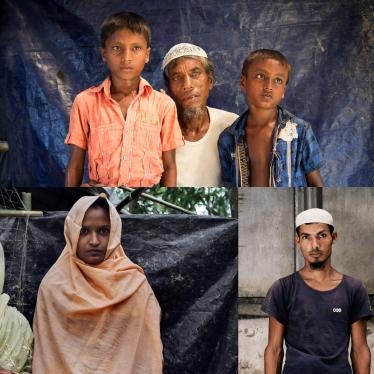(Jakarta) - East Timor's Parliament should exclude serious human rights crimes from a general amnesty law now under consideration, Human Rights Watch said today. The law could undermine the work of Timorese and international bodies investigating and prosecuting the grave abuses that took place in East Timor during the country's 1999 referendum on independence from Indonesia.
The law passed a first hearing on May 5. It will face an item-by-item debate and a vote in Parliament that will begin May 10 and possibly last several sessions. The original vote count was 24 in favor and 18 against, with 14 abstentions.
The law's preamble recommends clemency on the occasion of May 20, which marks the second anniversary of East Timor's independence after a quarter-century of Indonesian rule. The law's preamble states that, in a spirit of national reconciliation, it intends to forgive even those who have committed "serious crimes," a term covering gross human rights violations such as genocide, war crimes, crimes against humanity, murder, sexual offences and torture. The law also applies to ordinary crimes such as highway, tax and customs offenses.
When the people of East Timor voted for independence in the U.N.-administered referendum in August 1999, the Indonesian Armed Forces and Indonesian-backed Timorese militias embarked on a campaign of murder, arson and forced expulsion. An estimated 1,400 East Timorese civilians were killed in the months before-and days immediately after-the vote. Approximately 500,000 people were forced from their homes or fled to seek refuge.
"It is bitterly ironic to mark East Timor's second anniversary of nationhood by undermining justice for the most serious crimes that accompanied the country's independence," said Charmain Mohamed, East Timor researcher for Human Rights Watch. "Reconciliation has a place, but there can't be reconciliation without judicial accountability for violations of basic international human rights."
The U.N.-created Special Panels for Serious Crimes, which is comprised of international and East Timorese judges, its prosecutorial arm, the Serious Crimes Unit, and the East Timorese Commission for Reception, Truth and Reconciliation have all been pursuing some of those responsible for the abuses that occurred in East Timor.
The pertinent sections of the proposed law would significantly reduce sentences for the most serious crimes, such as crimes against humanity and widespread or systematic murder or rape. The law also explicitly extends a pardon to those who may have committed serious human rights violations, but have not yet been prosecuted.
"The Timorese leaders should not pardon crimes in advance of trial and conviction," Mohamed said. "Pardoning serious violators, especially before they've even faced a trial, contradicts the principle that time served should be proportionate to the gravity of the crime."
Those currently under indictment by the Serious Crimes Unit, which has been prosecuting serious crimes that occurred in East Timor during the 1999 violence, include four Indonesian generals, three colonels and Indonesia's former governor of East Timor. The charges include crimes against humanity based on murder, arson, destruction of property and forced relocation. The accused include former Indonesian Minister of Defense and Armed Forces Commander General Wiranto, now a presidential candidate in Indonesia.
Since trials began in 2001 at the Special Panels for Serious Crimes, 49 defendants have been convicted, and one was acquitted. As of April 2004, 12 trials with a total of 30 defendants have started or are scheduled to commence in the coming months.
In October, East Timor's Commission for Reception, Truth and Reconciliation is scheduled to issue its Final Report on crimes committed in East Timor before and during 1999. The proposed pardon would in effect preempt any serious judicial follow-up on that report.





